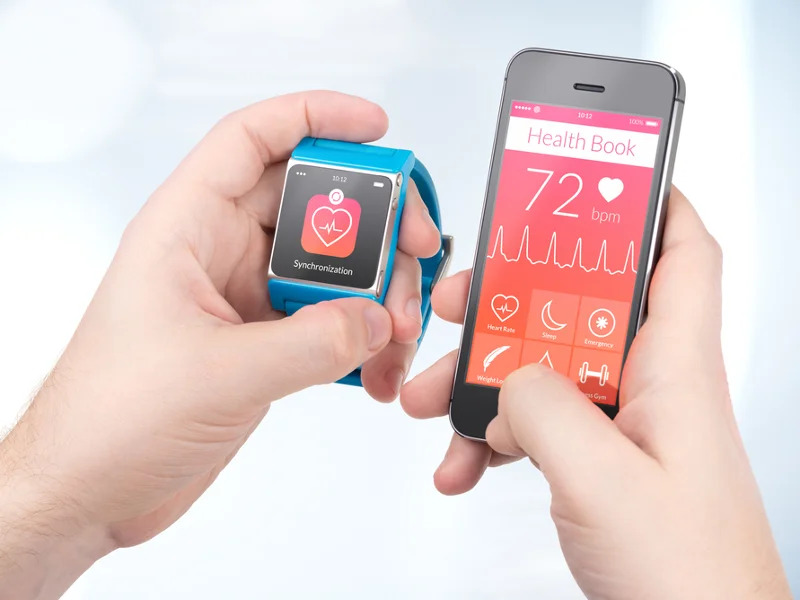In the fast-paced world of healthcare technology, one trend has been steadily gaining ground and capturing the imagination of health-conscious individuals: wearable health tech. These small, smart devices have transformed the way we monitor and manage our well-being, offering a range of benefits that were once unimaginable. let’s explore the rise of wearable health tech, exploring its evolution, the key players, and the profound impact it has on our lives.
A Brief History
Wearable health technology is not a new concept, but its evolution has been nothing short of remarkable. The concept of tracking one's health dates back to the pedometer, a device that counted steps. However, it was the introduction of the Fitbit in 2007 that marked a significant turning point. Fitbit popularized the idea of monitoring physical activity and sleep patterns using a small, user-friendly device. This launch kick-started the wearables revolution.
The Multifaceted World of Wearable Health Tech
Today, the world of wearable health tech is diverse and dynamic, with a multitude of devices catering to various aspects of health and wellness. Here are some of the latest startups around the globe working on these categories of healthcare devices:
1. SHG Technologies, an Indian startup, develops smart vision glasses for the visually impaired. These glasses use AI, machine vision, LiDAR, a camera, proximity sensors, and braille-coded touch keys to assist users with walking, reading, and identifying objects and people. They are recommended for individuals with various visual impairments like blindness, macular degeneration, diabetic retinopathy, cataracts, and more.
2. Vital, a US startup, offers APIs for wearables, including SDKs, widgets, and webhook integration. They enable device-agnostic health data collection, customizable lab test kits, and unified data insights. This reduces costs for manufacturers and healthcare providers.
3. byteSense, a US startup, designs a smart dental wearable for bruxism. Their night guard has built-in sensors, is comfortable, and wirelessly charges. It monitors teeth grinding during sleep and offers personalized recommendations through their app.
4. Haptic Diagnostics, a startup in Bahrain, creates haptDx, a wearable on the inner forearm. It uses haptic tech to convey real-time diagnostic data from continuous glucose monitors (CGM) through electro-tactile pads. This discreetly aids diabetes and wellness management without interrupting user activities.
5. NanoHealth is a pioneering Indian healthcare startup dedicated to revolutionizing remote health monitoring and chronic disease management. Through a synergy of innovative wearables and cutting-edge solutions, NanoHealth empowers individuals to take control of their health. Their wearable devices, seamlessly integrated with user-friendly platforms, enable real-time data collection and analysis. This data-driven approach facilitates timely interventions, promotes wellness, and effectively manages chronic diseases. NanoHealth's mission embodies the fusion of technology and healthcare to improve lives, ensuring that health is no longer confined by distance or time.
The Impact on Personal Health
The adoption of wearable health tech has had a profound impact on personal health and well-being. Here are some key benefits:
1. Increased Awareness:
Wearables provide real-time data, giving users insights into their daily activity, sleep quality, and even stress levels. This awareness motivates healthier choices.
2. Early Detection:
Devices equipped with advanced sensors can detect irregularities in heart rate, rhythm, and other vital signs, potentially alerting users to health issues before they become severe.
3. Customized Health Goals:
Many wearables allow users to set personal health goals and receive feedback and recommendations tailored to their progress.
4. Improved Doctor-Patient Communication:
Patients can share data collected by wearables with their healthcare providers, facilitating more informed discussions and better healthcare management.
The Future of Wearable Health Tech
As technology continues to advance, the future of wearable health tech holds exciting possibilities. We can expect:
1. Enhanced Sensors:
Smaller, more sensitive sensors will provide even more detailed health data, making wearables even more effective.
2. Health AI Integration:
Artificial intelligence will play a more significant role in analyzing health data, providing personalized insights, and predicting health trends.
3. Telehealth Integration:
Wearables will seamlessly connect with telehealth platforms, enabling remote monitoring and consultation with healthcare professionals.
4. Expanded Mental Health Focus:
Wearables will continue to target mental well-being, offering solutions for stress management, anxiety, and mood tracking.
In conclusion, the rise of wearable health tech represents a significant milestone in the journey toward improved personal wellness. These devices empower individuals to take charge of their health, promote proactive healthcare management, and enhance the overall quality of life. As technology continues to evolve, the potential for wearable health tech to revolutionize healthcare is limitless, promising a healthier and more connected future for us all.

 Explore the evolution, key players, and profound impact of wearable health tech in the fast-paced world of healthcare technology. Discover how these smart devices have revolutionized well-being management.
Explore the evolution, key players, and profound impact of wearable health tech in the fast-paced world of healthcare technology. Discover how these smart devices have revolutionized well-being management.









.jpeg)











.jpg)








